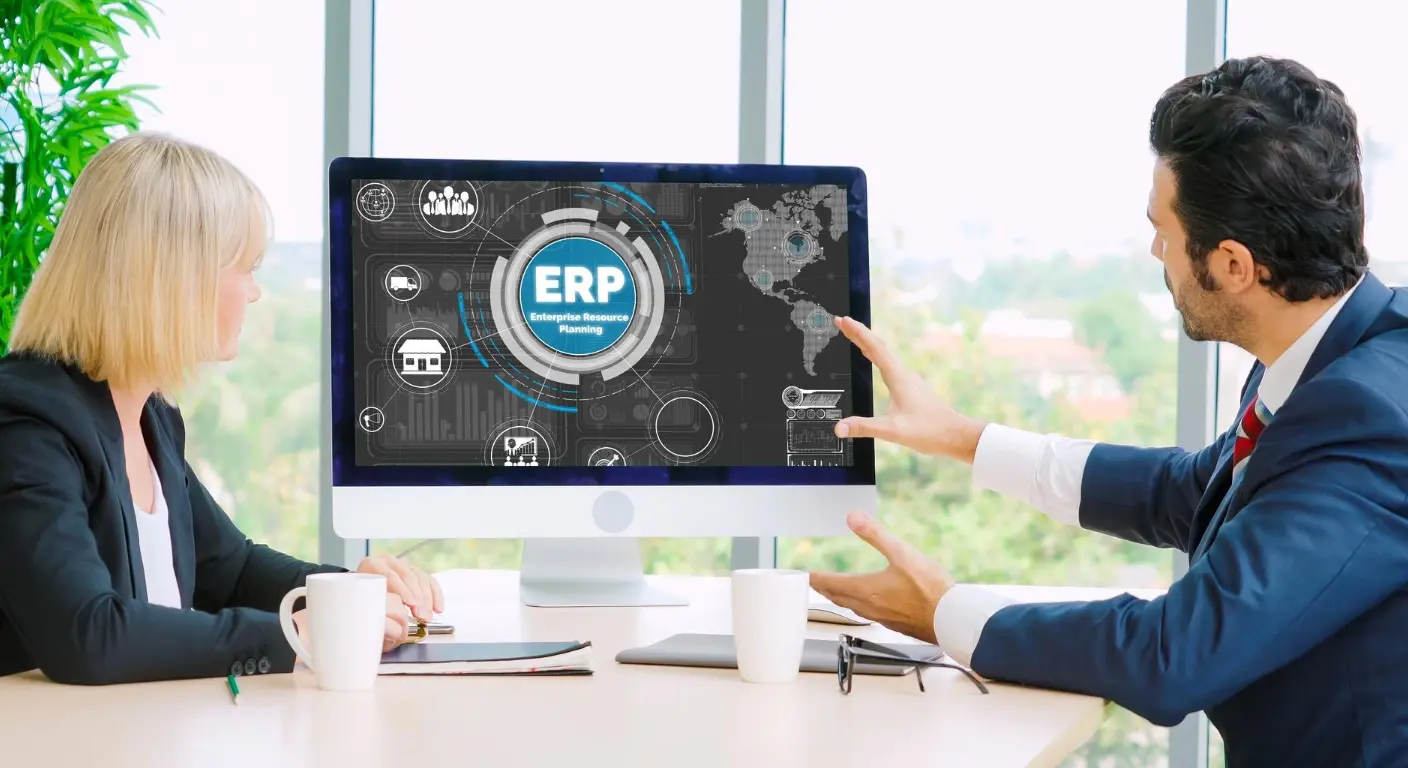
An ERP system is the backbone of a modern company.
But even the best systems age at some point and lose touch with current requirements. If your ERP system is outdated, you can clearly feel it: processes run more slowly, your employees switch to Excel spreadsheets and you lack essential functions that your competitors have been using for a long time. But how exactly can you tell that your ERP system urgently needs to be modernized?
In this article, you will not only learn which warning signals you should take seriously, but also what risks an outdated ERP system entails. Using a specific practical example, we will show you how a medium-sized company was able to regain its competitiveness through timely ERP modernization with the help of Dreher Consulting.
What makes an ERP system obsolete?
Lack of updates and limited functionality
A typical sign of an outdated ERP system is a lack of updates. Manufacturers of older systems often no longer provide regular updates, which means that important new functions cannot be integrated. For example, modules for cloud integration, AI-based analyses or mobile access options are missing.
Slow system performance
Longer loading times, frequent crashes and delays when entering data are clear indications of an outdated system. Such performance problems lead to frustration among employees and inefficient workflows.
Manual workarounds with Excel
If your employees are increasingly relying on external Excel spreadsheets to map ERP-supported processes, this is a strong warning signal. This practice not only increases manual effort, but also carries a high risk of data errors and inconsistencies.

Risks of an outdated ERP system
Security risks
Older ERP systems often only offer limited protection against cyber attacks, as manufacturers no longer provide security updates. Data leaks or cyberattacks can result in massive economic and reputational damage.
High operating costs
Paradoxically, the operating costs of outdated ERP systems often rise continuously. Maintenance costs increase, support is harder to come by and unexpected system failures cause expensive repairs and business disruption.
Competitive disadvantages
Modern competitors have long been using automated and agile ERP solutions. An outdated system holds your business back and impairs your ability to respond quickly to market changes and effectively serve customer needs.
Practical example: How a medium-sized company solved its ERP problems
The challenge
A medium-sized manufacturing company in southern Germany was increasingly struggling with inefficient processes and high manual effort due to outdated ERP structures. Important company data had to be maintained manually and employees were spending several hours a day reworking Excel. In addition, there were frequent system failures that caused production stoppages and delivery delays.
The solution from Dreher Consulting
Following a comprehensive analysis of the existing ERP system and business processes, Dreher Consulting identified key weaknesses. Together with the company, a clearly structured modernization plan was developed. This included
-
Selection of a modern ERP system specifically geared towards medium-sized manufacturing companies.
-
Introduction of automated processes and reduction of Excel-based workarounds.
-
Gradual integration of mobile applications and cloud functions.

The results
The positive changes were already noticeable after a short time:
-
Significantly improved process speed and reduced error rate.
-
Employees were able to focus on strategic tasks instead of manual data maintenance.
-
Significantly lower operating costs and increased competitiveness.
Today, the company is agile and responsive again and has even been able to open up new business areas, which would have been unthinkable before.
When should you act?
Early action protects your company
The longer you wait to modernize your ERP system, the greater the risks. Early action not only saves money in the long term, but also protects your company from critical security risks and massive competitive disadvantages.
Clear indicators for immediate action:
-
Your employees spend time with Excel every day instead of the ERP system.
-
System updates have not been carried out for over 12 months.
-
Your IT department regularly receives complaints about slow performance or system crashes.
-
Competitors are technically far ahead of you and offer functions that your ERP system does not support.
How do you start your ERP modernization?
Step 1: Inventory
Analyze the current situation in detail. Which processes are not running smoothly? Where is a lot of manual work involved?
Step 2: Call in professional advice
An independent ERP consultancy such as Dreher Consulting will help you to objectively find the best solution for your company and avoid typical pitfalls when selecting a system.
Step 3: Create a clear roadmap
Together with your consulting partner, you create a roadmap that includes both short-term measures to minimize risk and long-term steps for strategic modernization.
Step 4: Implementation and continuous optimization
Start the implementation step by step and use regular reviews to ensure that your ERP solution meets your company's requirements in the long term.
Conclusion: A modern ERP system makes all the difference
An outdated ERP system represents a serious risk for your company. Early recognition and action are essential in order to remain competitive in the long term and to make your operational processes secure, efficient and agile.
Take action now: Arrange a free initial consultation
Do you recognize yourself in this article? Arrange a non-binding appointment for a free initial consultation via web conference. Together we will analyze your current ERP situation and show you specific solutions.





/Herr_Dreher_500x500.jpg)



